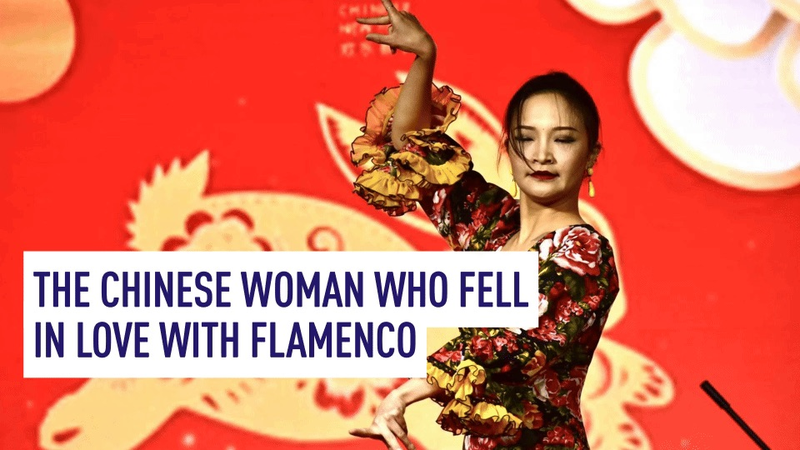In a story as vibrant as the dance itself, Karina Yao (姚天慧) discovered flamenco through the evocative words of Spanish poet Federico Garcia Lorca, who once described the art as "the oldest song in all Europe, carrying echoes of an oriental past." His poetic imagery sparked a passion that transcended borders.
While studying Spanish at home in Taiyuan city, Shanxi province, Karina first encountered Lorca's work in 2012. Captivated by the soulful intensity of flamenco, she embarked on a journey that led her to Spain within the same year. In Seville, she attended her first flamenco class and recalled thinking, "wow, it's so real and so passionate," a moment that would redefine her future.
Today, in the heart of Madrid at the La Corrala dance studio in the Lavapies neighborhood, Karina not only lives her passion but also shares it. Reflecting on her upbringing in a traditional and conservative Chinese family, she explains, "When I dance, I can express the real me. I can express my joy, my sorrow, and all of my experiences." For her, flamenco is a language—one that requires learning the steps and rhythm much like mastering grammar.
Her journey has been enriched by years of musical training and cultural immersion. Touring with the international ensemble Flamenco Sin Fronteras, which blends talents from China, France, and the United States, Karina experienced firsthand how art can unite diverse cultures. Now, a decade after her initial leap into flamenco, she dedicates herself to teaching other Chinese women, guiding them to break free and express themselves through this timeless art form.
Karina's story is a testament to the transformative power of dance. Her passion for flamenco not only reshaped her life, but also created a bridge between rich traditions and modern self-expression—a true celebration of art that continues to unfold across the global stage.
Reference(s):
cgtn.com




